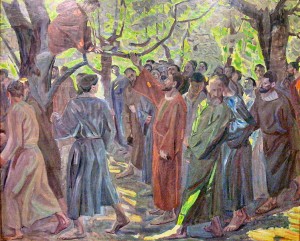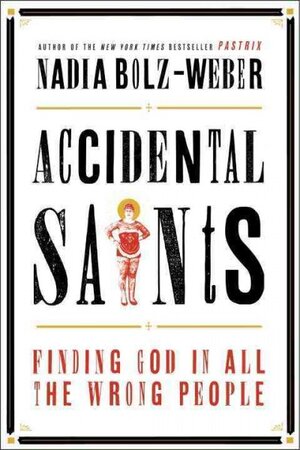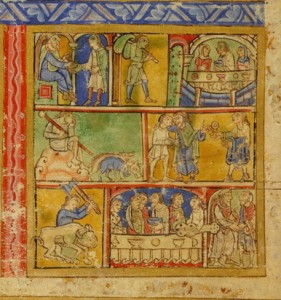What does “Metanoia” Mean?
“Be transformed by the renewal of your mind, so that you may judge what is God’s will, what is good, acceptable and perfect.” (Rom 12:2)
Many of us have a desire for closeness to God and the realization of all that we can be. Those goals inevitably call us to change. But, change is hard. And often we feel that we cannot make it happen. In fact, we cannot and do not make it happen. As Christians we realize that God makes it happen. We can let desire in. We can say “yes” to change even if it feels like an unknown path. We can push back fear and see the new possibilities as freedom from the past or as an adventure. But even these are with God’s support. Left on our own, we humans fall into fear, laziness, and even anger that there is work involved in finding true happiness.
Why is growth toward happiness so much work? Is there a point to work? Why doesn’t God just give us feelings of happiness or all the material goods that would meet normal needs?
Created for Transcendence
In his love, God has created us to transcend our natural selves. He has built into his creation a sense of beauty and love that goes far beyond the need to survive. As humans evolved from an un-self-reflective consciousness to an ability to be self-reflective, they developed the ability to choose consciously and to know if an act is harmful to self or others. This is a good and basic moral accomplishment, but the bigger task for humans has been to distinguish accomplishments from our fundamental orientation. Many of us work very hard at doing important and helpful things. We build our legacy goal by goal.
In the middle of all of this striving we inevitably hit such things as disappointment, tragedy, loneliness, thoughtlessness, health problems, and set-backs. We ask ourselves if all the effort is worth it. Do I matter? Does my life matter?
I can react with anger or ego and wrap myself up in accomplishments, money, or an attractive body. I often yell at God about why I have to work so hard to get things done. I always get back the same reply, “Because I love you.” God loves me enough to invite me to work with my fear and my feelings of inadequacy and to let him help me through all the moments of planning and work. No one is going to hand me good relationships. But, my prayerful reflection on my relationships can improve them. I can let God calm me down. I can hear an inner voice suggesting a better way to talk or listen.
All of this hope and growth can happen if my fundamental orientation is to God. The desire to depend on God happens because I surrender to God and to God’s ways. The Bible speaks of the turn in fundamental orientation as “metanoia.”
Repentence or more?
The term “metanoia” appears 58 times in the New Testament. It is usually translated as “repentance.” But, the translation as “repentance” is controversial. It can be traced back to a choice that had to be made when the text was translated for early Latin Christianity. There was no equivalent in Latin to the earlier Classical Greek meaning. Classical Greek understood it as a change of mind. Even if one narrows the word to repentance, it never in Greek usage had a sense of sorrow or regret. “Meta” means beyond or after and “noia” means mind. Why is this search for precision important?
It is important because “metanoia,” even if translated as repentance, is in the broader context of Jesus’ intention to announce the coming of the kingdom of God. There is a process in the Gospels by which people come to the Kingdom and salvation. It is a process of evangelism, encounter with God, enlightenment, conversion, repentance, decision, and a new self-identity which includes a change of belief and social structure. Sorrow for sins is important and good, but the encounter with God and commitment to him is the only enduring basis for belief, change and perseverance. We see examples of this in the story of St. Peter’s responses to Jesus after the Resurrection (Jn 21:15-21) or the call of the disciples (Jn. 1:35-39).
 A lasting “metanoia” or change happens because of an experience of God.
A lasting “metanoia” or change happens because of an experience of God.
No one can define the nature of that experience. It is different for each person. It can be a sense of closeness such as that experienced by Mary, Martha and Lazarus (Lk. 10:38-42, Jn. 11:1-44) or an answer to prayer or the knowledge that one has been saved from a threat or entanglement as in the experience of Zacchaeus the tax collector (Lk. 19:1-10). Some people have visions, others experience healings. For some a particular passage in Scripture sets their hearts on fire or they experience a feeling of consolation after receiving communion.
Metanoia: A gift for the entire community
Some Christian groups make a distinction between the metanoia and pursuant faith commitment of someone raised in the faith and the startling experience St. Paul had on the road to Damascus. There is no difference. People raised in a faith tradition can grow from learned traditions and rules to an experience of God. It can be quite eye-opening. Many are not counting on knowing Christ. The practice of prayer can provide strength and guidance, but experience of God is the possible and expected point of prayer. This is not just for the canonized saints. God can re-frame our accustomed ways. This is metanoia. It is a turning or conversion which takes our consent, but it is a gift.
Give God some time to meet you in prayer. Read the Gospels and put yourself in the stories. Consider giving your life to God and let him lead you to your experience of him, to your metanoia.
Read More
 Fr. Gregory Boyle, SJ is known to Los Angeles gang members as “Father G” or simply “G”. Fr. Boyle sees all their problems as arising from a “lethal absence of hope”. His response is to provide them with hope and jobs in Homeboy Industries. Terry Gross’s NPR interview with Fr. Boyle tells the story of how empathy renews and restores hope.
Fr. Gregory Boyle, SJ is known to Los Angeles gang members as “Father G” or simply “G”. Fr. Boyle sees all their problems as arising from a “lethal absence of hope”. His response is to provide them with hope and jobs in Homeboy Industries. Terry Gross’s NPR interview with Fr. Boyle tells the story of how empathy renews and restores hope. In God’s Presence, Conquering Addiction through Dance is the title of Elizabeth Delancy’s dissertation. It is a study of how black women have surmounted addiction by moving in God’s presence. Although, it is a little technical, it documents how this works. Resolving to do better is the key dynamic of reconciliation. It is the celebration of a brighter future. It is the combination of hope and optimism.
In God’s Presence, Conquering Addiction through Dance is the title of Elizabeth Delancy’s dissertation. It is a study of how black women have surmounted addiction by moving in God’s presence. Although, it is a little technical, it documents how this works. Resolving to do better is the key dynamic of reconciliation. It is the celebration of a brighter future. It is the combination of hope and optimism.




























